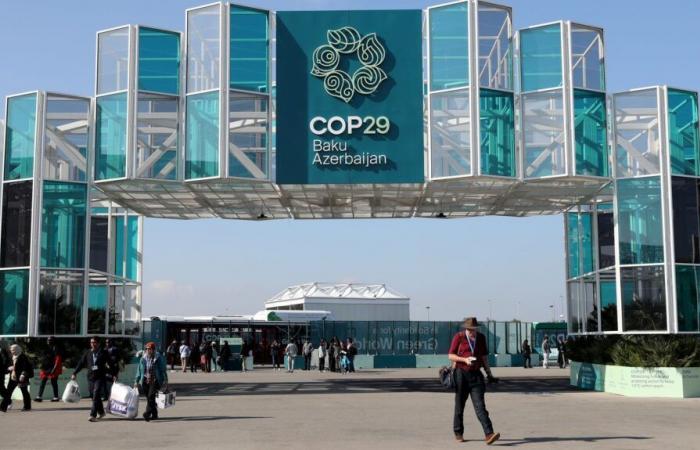It is a close and ancestral relationship, but one that worries some people. Azerbaijan, whose capital Baku hosts COP29 from Monday November 11, is one of the oldest oil-producing countries. If this climate summit, which comes at a time when all continents have faced natural disasters this year, will be mainly devoted to finding money to support developing countries, it should also make progress on the subject of the end of oil. .. While the host country is a major producer of hydrocarbons.
Azerbaijan actually saw its production explode in the 1990s, when it brought in international companies to drill in deep water in the Caspian Sea. Since then, gas and oil have accounted for a third of GDP, accounting for the bulk of the country's exports.
In the country, power plants run on gas and some pumps at gas stations charge 50 euro cents per liter. The national oil company is closely linked to the country's development: the current president of the country, Ilham Aliyev, was a leader, the president of the COP, Mukhtar Babayev, is also a veteran of the State Oil Company of Azerbaijan Republic (SOCAR) and the CEO of the company is part of the organizing committee.
Like many other producing countries, Azerbaijan plans to significantly increase extraction. However, this contradicts the recommendations of the International Energy Agency, but the country has signed a contract to double gas exports to Europe. Finally, if it is gradually moving from oil to gas and if Baku is developing fossil fuels, it is mainly to secure sales abroad.
Still, some are worried: after Egypt in 2022 and Dubai in 2023, this is the third time in a row that the COP has been organized by a hydrocarbon-producing country. “The oil lobbies are doing everything to derail the negotiations“, denounces climatologist Jean Jouzel. According to him, the choice of Baku for this 29th Conference of the Parties on climate change is “democratic“, but after Egypt in 2022 and Dubai in 2023, “That's a bit much, three COPs (in a row) with oil-producing countries“.
The former member of the IPCC nevertheless wishes to emphasize that “this is the normal rotation of regions“The choice to organize an international meeting dedicated to obtaining ecological resolutions in Baku”was accepted by the United Nations“. “We cannot object to the fact that the Asia region has accepted that it is Azerbaijan“, adds the climatologist, recalling that “thesee you next time, it should be Europe's turn“.
For their part, certain NGOs express their concern about the omnipresence of oil, which has become the energy to abandon for survival to limit global warming to +1.5°C with the Paris agreements. It is also set in stone: it is the main progress of the last COP in Dubai. The countries then agreed on a “transition away from fossil fuels”.
But this is only a declaration for now: the implementation must take place precisely in Baku. It remains to be seen whether the presidency will really push this agenda. The most optimistic point out that in Dubai, the president of the COP was an oil company manager, which did not prevent a final declaration on the exit from fossil fuels.






